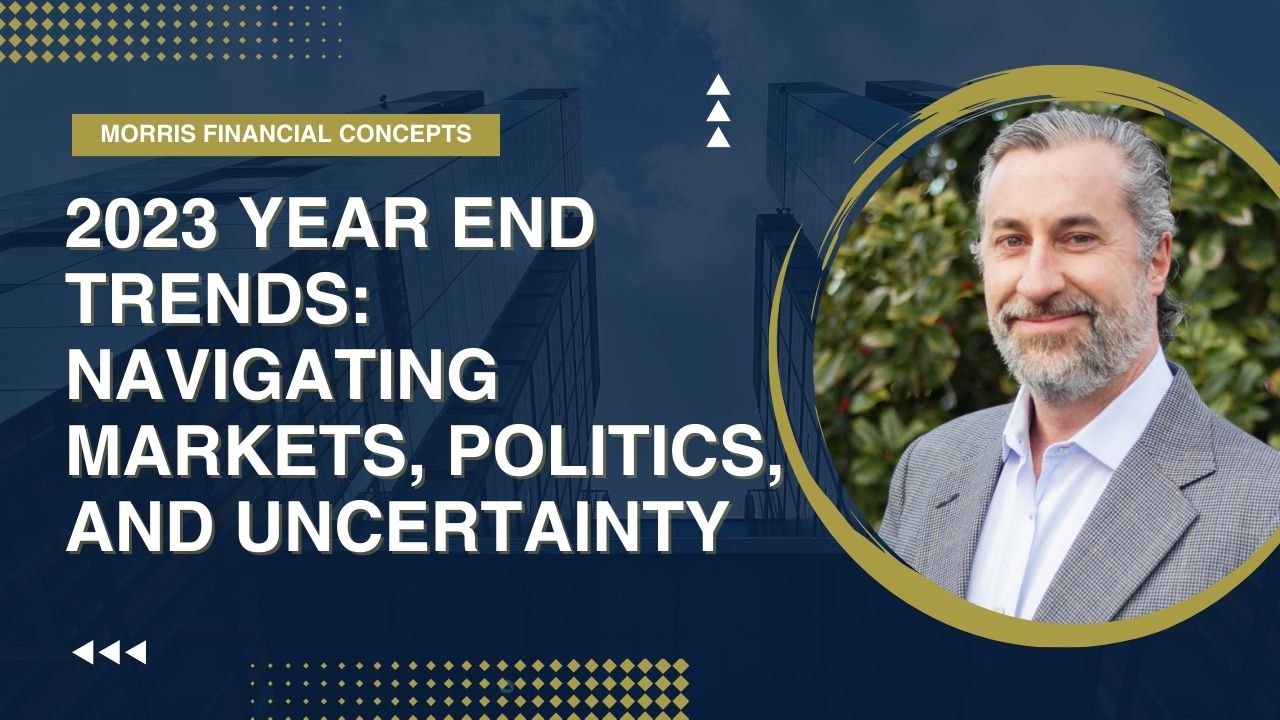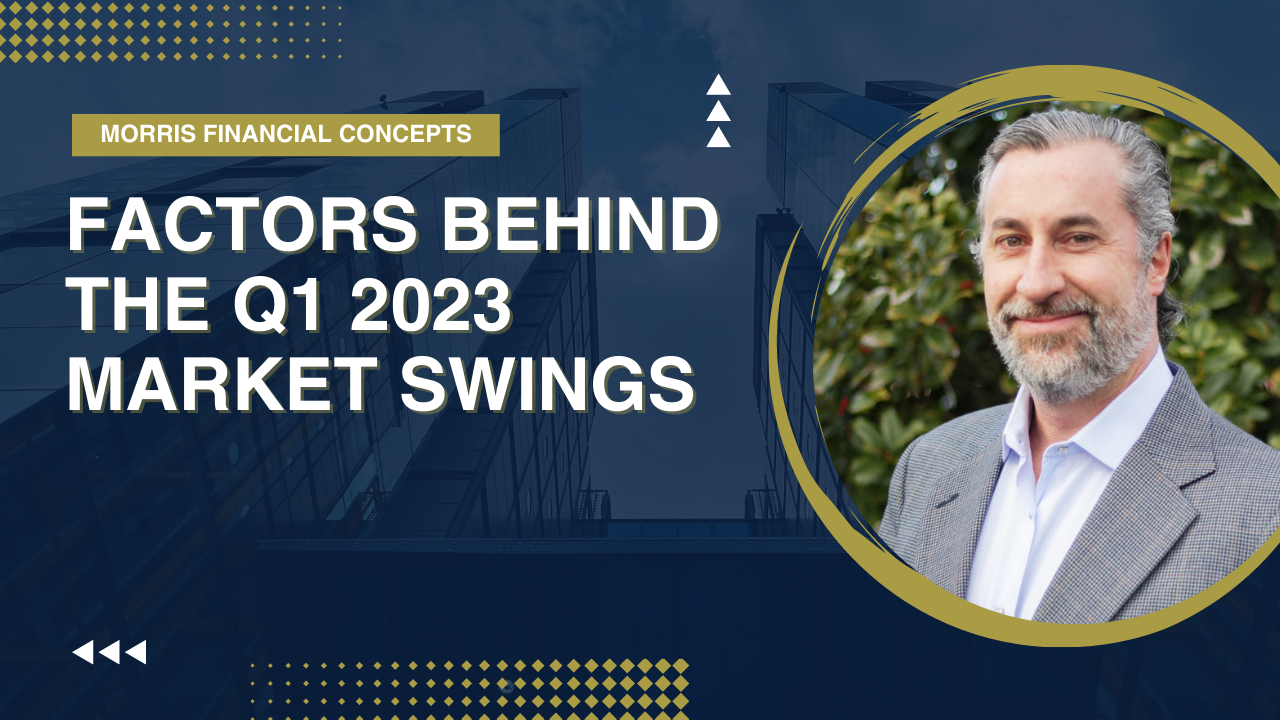Understanding The 2023 Banking Crisis
In a recent episode of the Morris Financial Concept podcast, Bart Valley discusses the impact of the recent banking crisis on the broad market. Bart sheds light on the crisis, its causes, potential effects, and offers valuable insights for investors navigating through uncertain times. Here is the summary of the key points discussed in the podcast.
The Impact of the Banking Crisis on the Broad Market
Bart starts by addressing the impact of the recent banking crisis on the broad market. Contrary to expectations, the crisis did not have as significant an effect as anticipated due to the strong and purposeful response from the federal government. While regional banks faced upheaval, Bart suggests that the worst of the crisis has passed and the situation has settled down.
The Effects of Aggressive Interest Rate Increases
One crucial aspect to monitor in the aftermath of the crisis is the effect of aggressive interest rate increases. Bart highlights the magnitude and speed of the rate increases, noting that the Federal Funds Rate has risen from near 0% to almost 5% in just one year. Such aggressive increases can lead to potential disruptions and challenges within the economy and the banking sector, as seen in the recent crisis.
Preparing for Slower Economic Growth
From an economic standpoint, Bart explains that higher interest rates aim to slow down an overheating economy. This implies a period of slower growth, which may or may not lead to a recession. Regardless of the label, investors should expect a slowdown and plan accordingly. Bart advises that having a proactive approach and a well-structured plan can help weather periods of slower growth economically.
The Benefits of Fixed Income Investments
Despite the potential slowdown, Bart suggests that fixed income investments, such as bonds, can offer attractive opportunities. After years of low rates, investors can now obtain yield from their fixed income portfolios. Bart quotes someone he heard saying, “If you don’t like bonds right now, you just don’t like bonds.” This shift in interest rates presents a more favorable environment for bond investors compared to previous years.
Navigating Uncertainty with a Well-Structured Plan
In uncertain times, Bart emphasizes the importance of having a well-structured plan and avoiding reactive decision-making. Investors should not let short-term shocks or fluctuations derail their long-term strategies. By maintaining a proactive approach and focusing on their investment plans, they can navigate through uncertainty more effectively.
The Role of Diversification in Mitigating Risks
Diversification plays a vital role in mitigating risks, especially during banking crises. Bart highlights the significance of diversifying investments across various sectors and regions. By spreading investments, investors can reduce the impact of underperformance in specific companies, industries, or countries. Bart emphasizes that diversification is a valuable risk reduction strategy that should not be overlooked.
Dispelling Misconceptions about Banking Crises
Bart addresses common misconceptions surrounding banking crises. He clarifies that not all bank crises are the same and that they are not rare occurrences. Drawing on historical examples like the Great Depression, the savings and loan crisis, and the 2008 financial crisis, Bart emphasizes the resilience of the market over the long term.
Embracing Uncertainty and Avoiding Hindsight Bias
In times of uncertainty, it is crucial to embrace the unpredictability of the future and avoid falling into hindsight bias. Bart cautions against the tendency to look back at unpredictable events and convince ourselves that they were somehow predictable. By embracing uncertainty and avoiding hindsight bias, investors can make rational decisions and avoid emotional reactions.
The Importance of Rational Decision-Making
Bart highlights the importance of rational decision-making during crises. Emotional decision-making tends to lead to poor financial choices. Investors should stick to their well-thought-out plans and avoid making reactive decisions based on daily news or short-term market fluctuations.
Collaboration for a Healthy Functioning Economy
Bart suggests that policymakers, industry executives, and lawmakers should collaborate to strike a balance between a healthy, functioning, free market and appropriate regulations. Finding the right level of regulation for each sector and industry can help protect the economy from severe crises while maintaining a market’s vitality.
By understanding the impact of the crisis on the broad market, preparing for slower economic growth, embracing diversification, and making rational decisions, investors can position themselves for long-term success. While shocks and crises are inevitable, having a well-structured plan and a proactive mindset can help investors weather any storm and stay on track towards their financial goals.
The opinions expressed herein are those of Bart Valley at Morris Financial Concepts, Inc. (“MFC”) as of the date of publication and are subject to change without notice. Nothing contained herein is intended to be investment advice. MFC is an independent investment adviser registered under the Investment Advisers Act of 1940, as amended. Registration does not imply a certain level of skill or training. More information about MFC including our investment strategies, fees, and objectives can be found in our ADV Part 2, which is available upon request.


